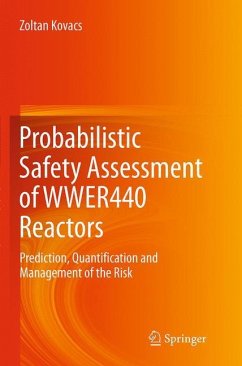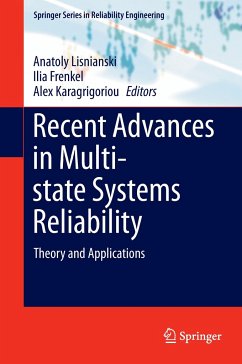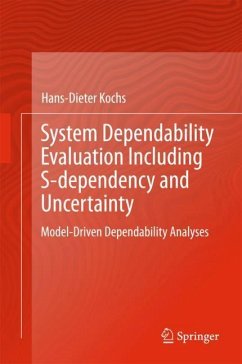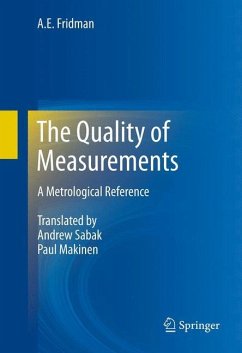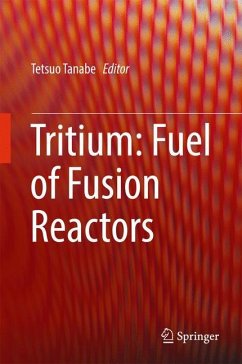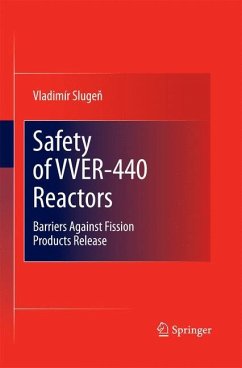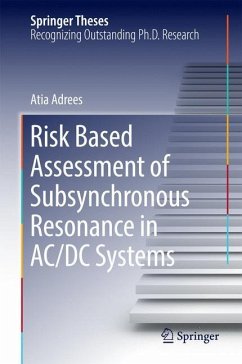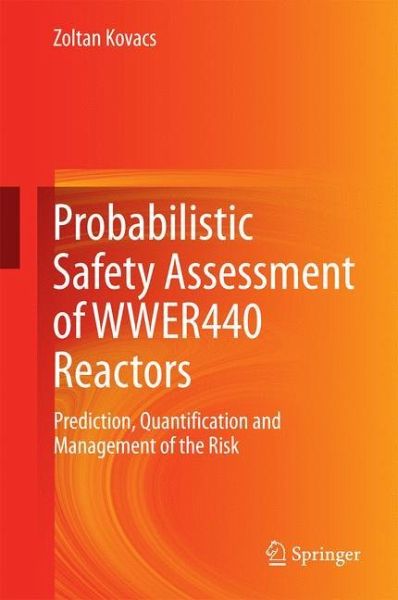
Probabilistic Safety Assessment of WWER440 Reactors
Prediction, Quantification and Management of the Risk
Versandkostenfrei!
Versandfertig in 6-10 Tagen
76,99 €
inkl. MwSt.
Weitere Ausgaben:

PAYBACK Punkte
38 °P sammeln!
The aim of this book is to summarize probabilistic safety assessment (PSA) of nuclear power plants with WWER440 reactors and demonstrate that the plants are safe enough for producing energy even in light of the Fukushima accident. The book examines level 1 and 2 full power, low power and shutdown PSA, and summarizes the author's experience gained during the last 35 years in this area. It provides useful examples taken from PSA training courses the author has lectured and organized by the International Atomic Energy Agency. Such training courses were organised in Argonne National Laboratory (Ch...
The aim of this book is to summarize probabilistic safety assessment (PSA) of nuclear power plants with WWER440 reactors and demonstrate that the plants are safe enough for producing energy even in light of the Fukushima accident. The book examines level 1 and 2 full power, low power and shutdown PSA, and summarizes the author's experience gained during the last 35 years in this area. It provides useful examples taken from PSA training courses the author has lectured and organized by the International Atomic Energy Agency. Such training courses were organised in Argonne National Laboratory (Chicago, IL, USA), Abdus Salaam International Centre for Theoretical Physics (Trieste, Italy), Malaysia, Vietnam and Jordan to support experts from developing countries.
The role of PSA for the plants is an estimation of the risks in absolute terms and in comparison with other risks of the technical and the natural world. Plant-specific PSAs are being prepared for the plants and being applied for detection of weaknesses, design improvement and backfitting, incident analysis, accident management, emergency preparedness, prioritization of research and development and to support the regulatory activities.
There are three levels of PSA, being performed for full power and low power operation and shutdown operating modes of the plants: level 1, 2 and 3 PSA. The nuclear regulatory authorities do not require the level 3 PSA for the plants in the member countries of the European Union. This means that only a limited number of NPPs in Europe have the level 3 PSA available. However, in the light of the Fukushima accident the performance of such analyses is strongly recommended in the future. This book is intended for professionals working in the nuclear industry, researchers and students interested insafety of operational plants.
The role of PSA for the plants is an estimation of the risks in absolute terms and in comparison with other risks of the technical and the natural world. Plant-specific PSAs are being prepared for the plants and being applied for detection of weaknesses, design improvement and backfitting, incident analysis, accident management, emergency preparedness, prioritization of research and development and to support the regulatory activities.
There are three levels of PSA, being performed for full power and low power operation and shutdown operating modes of the plants: level 1, 2 and 3 PSA. The nuclear regulatory authorities do not require the level 3 PSA for the plants in the member countries of the European Union. This means that only a limited number of NPPs in Europe have the level 3 PSA available. However, in the light of the Fukushima accident the performance of such analyses is strongly recommended in the future. This book is intended for professionals working in the nuclear industry, researchers and students interested insafety of operational plants.




